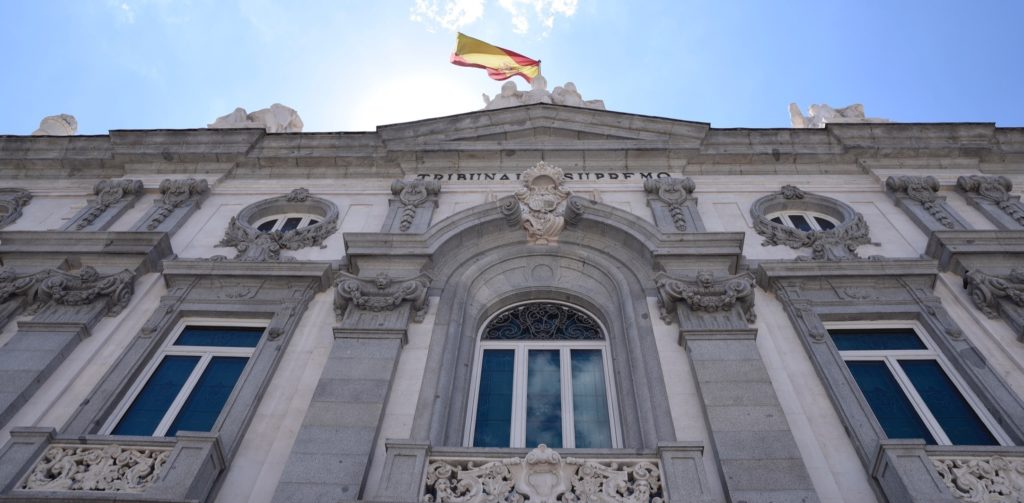12.01.2018 - 15:15
There is an exception to the deafening silence of Spanish society, following the growing deterioration of the rule of law: the warning by some judges and jurists about the dangers posed by Spain’s withering democratic standands after the adoption of political and judicial measures against Catalonia. Spain’s political class applauds the Supreme Court’s interlocutory statements that infringe upon basic rights and every time the prosecutor’s office takes action and makes the separation of powers increasingly thinner. In contrast with the Partido Popular (PP), Ciudadanos (Cs) and the socialist party (PSOE), only Podemos has criticised the adoption of repressive measures, lodging an appeal with the Constitutional Court against Article 155. With few exceptions, Spain’s major news outlets weave a matching narrative and the main associations of judges have not been coy about giving their blessing.
Only Jueces para la Democracia (“Judges for Democracy”) has criticised —to a point— Rajoy’s excesses and some judicial decisions. On November 4 last year they released a statement that questioned whether Audiencia Nacional judge Carmen Lamela had respected the right to counsel of the Catalan government members that were held on remand, and voiced their “concern” over “an extensive interpretation of criminal law that limits individual freedom”. The association also pointed out that, following jurisprudence endorsed by the Constitutional Court, holding a defendant on remand pending trial must be an exceptional measure: “As a general rule, individuals who face charges should not remain in custody”. On this point, the statement emphasised that some measures are less severe than prison pending trial: “bail, seizure of travel documents, surveillance by law enforcement or being summoned to court periodically”. Nevertheless, the same note rejected the notion that the Catalan government members who are in prison are political prisoners.
In September 2017 a number Catalan judges abandoned Jueces para la Democracia because the association refused to endorse a public statement against the judicialisation of politics in the conflict between Catalonia and Spain. According to its promoters, the document’s scope was “modest” and claimed that attempting to resolve a political issue in court was “inappropriate”. One of the sixteen judges who quit was Juli Solaz, one of the examining magistrates in the Palau corruption case. In contrast, Jueces para la Democracia had no qualms about signing a joint statement by Spain’s seven associations of judges and prosecutors on October 27 last year —the day when the Catalan parliament declared independence— rejecting the parliament’s decision and emphasising that the only law currently in force is “that which stems from the Spanish constitution”.
Another significant gesture came with the manifesto published on November 10 by one hundred criminal law professors across Spain condemning the Audiencia Nacional’s decisions against the Catalan government. A majority of criminal law professors from Spanish universities slammed judge Lamela’s questionable decisions and called them disproportionate. Furthermore, they pointed out that Madrid’s Audiencia Nacional was not a competent court of law in this case and that the Catalan leaders could not be charged with rebellion or sedition.
Beyond these actions, only the odd voice occasionally breaks the silence and the consensus over the crackdown against Catalonia’s secessionist leaders. One such name is Javier Pérez Royo, a professor of Constitutional Law who spoke vehemently in an interview with this newspaper about the future health of Spain’s democracy: “Either the Catalan issue is resolved or Spain won’t have a democratic government”. In his opinion, the most worrying issue is the fact that Catalan government members have been indicted for rebellion “when no such crime was committed”. Nevertheless, he remains pessimistic about a possible shift in the position of the Spanish Supreme Court: “It’s looking pretty bleak, among other reasons because stopping the Supreme Court is nearly impossible now. And the entire Catalan political process will remain bogged down until the Supreme Court is stopped”.
Judge Elpidio José Silva is another voice in the desert. He was dismissed from his post over a corruption probe, the so-called Blesa case. He is a stone in the shoe of Spain’s powers and he criticised the Spanish police’s actions on October 1, which he called “the most disastrous performance in Spanish history”. As a judge, he believes that Jordi Sànchez, Jordi Cuixart —and the members of the Catalan government— cannot be charged with sedition or rebellion. He claims that the fact that they are being held in custody is “the obituary of the 1978 regime”.
Even though judge Silva has already written its obituary, it would appear that the 1978 regime is determined to live on in the corridors and offices of the Supreme Court and the Audiencia Nacional, with the complicit silence of many intellectuals and the political class at large. Only a few exceptions are an oasis in the desert.



